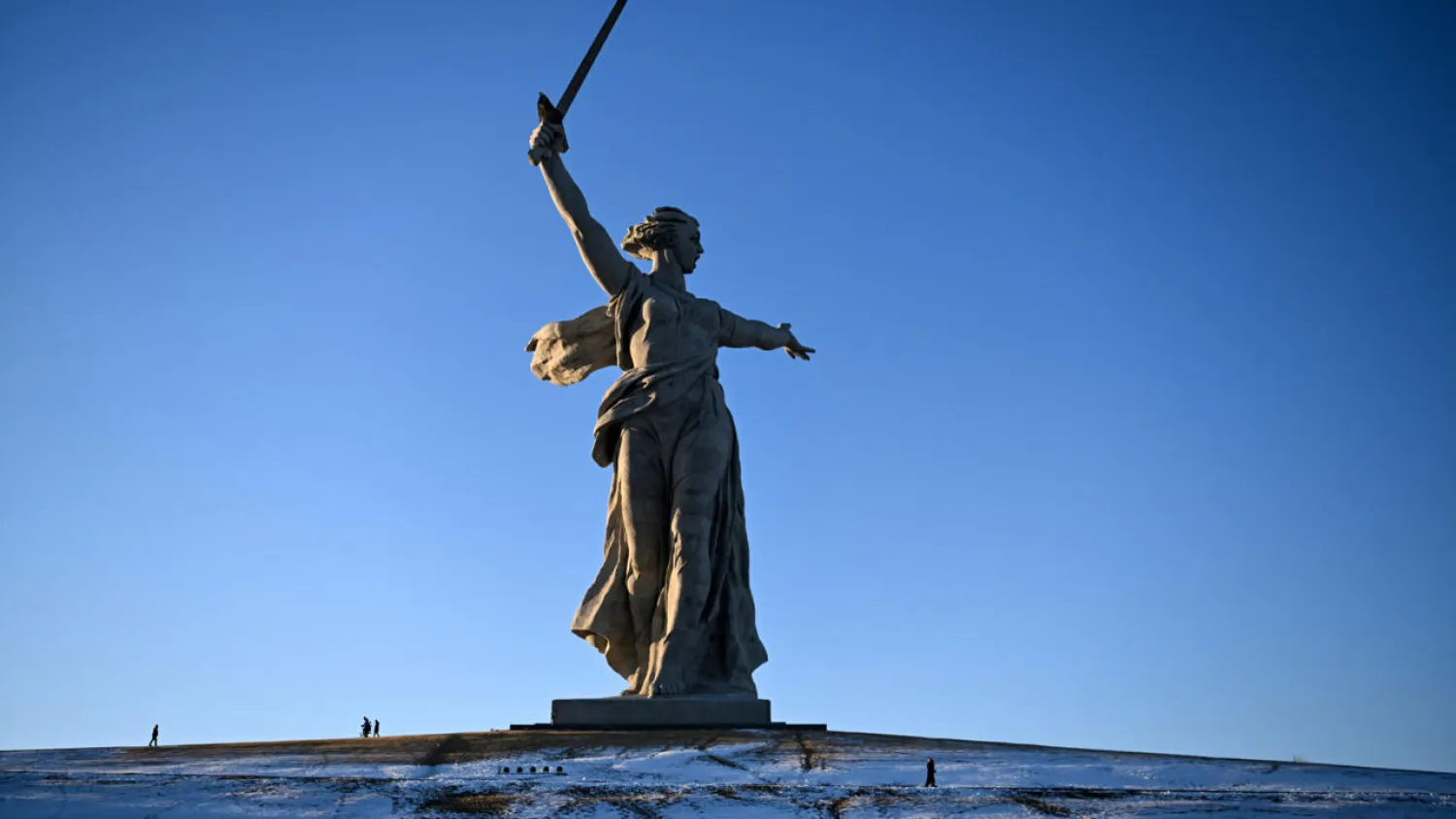President Vladimir Putin is set to preside Thursday over commemorations to mark the 80th anniversary of the Soviet victory at the Battle of Stalingrad, one of the bloodiest in World War II.
The high-profile celebrations in the southern city of Volgograd come as the Kremlin is drumming up support for its offensive in Ukraine, launched nearly a year ago to "de-Nazify" Ukraine, whose soldiers fought alongside Russia against Nazi Germany, AFP said.
Putin is expected to travel to Volgograd, formerly known as Stalingrad, to take part in a wreath-laying ceremony at a war memorial and speak at a concert, the Kremlin said.
The battle of Stalingrad lasted more than six months, ending with the surrender of German troops on February 2, 1943, after more than a million people were killed.
The Red Army's victory marked a turning point not only for the Soviet Union, which had suffered several heavy defeats, but also for the Allied forces.
The 80th anniversary of the victory comes as Russia seeks to step up its offensive in Ukraine, bolstered by tens of thousands of reservists mobilized last autumn.
Russia has claimed recent gains near the hotspot town of Bakhmut in the eastern Donetsk region of Ukraine.
Moscow also recently announced the capture of the eastern town of Soledar as it seeks to wrest control of the entirety of the region of Donetsk.
Although the significance of capturing the salt-mining town is disputed, Soledar was the first major victory for Russia's forces following a series of setbacks on the ground.
- Bust of Stalin -
On Wednesday, a bust of dictator Joseph Stalin was unveiled in Volgograd.
Since Putin took power in Russia in 2000, there has been a growing chorus of Russians who take a positive view of the despot's role in history, and historians have pointed to the creeping rehabilitation of Stalin in the country.
Nostalgic for the superpower status of the USSR, many Russian officials have been promoting Stalin as a tough leader who led the Soviet Union to victory in World War II and presided over the country's industrialisation.
The Soviet Union lost 20 million people in World War II and the legacy of what is known in the country as the Great Patriotic War is venerated.
Putin has frequently drawn parallels between what he calls his "special military operation" in Ukraine and the war against Nazi Germany.
Speaking on Holocaust Remembrance Day last week, Putin accused "neo-Nazis in Ukraine" of committing crimes against civilians.
"Forgetting the lessons of history leads to the repetition of terrible tragedies," Putin said.
"This is evidenced by the crimes against civilians, ethnic cleansing and punitive actions organised by neo-Nazis in Ukraine," he added. "It is against that evil that our soldiers are bravely fighting."
Officials said they declared Wednesday and Thursday public holidays in Volgograd following a request from war veterans.
Flowers and wreaths will be laid at the city's main landmark, Mamayev Kurgan, a strategic hill overlooking the city that was the scene of heavy fighting in World War II.
It is now marked by a towering sculpture of a woman holding up a sword, named "The Motherland Calls".
The city on the banks of the Volga River was rebuilt after the war left it in ruins. It was renamed Volgograd in 1961, eight years after the death of Stalin.
Since 2013, the city is temporarily renamed Stalingrad several times a year, including on February 2 and on May 9, when Russia holds nationwide celebrations on the anniversary of the Soviet victory in the Great Patriotic War.









